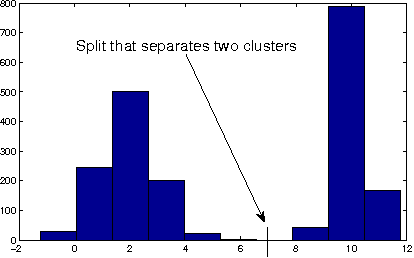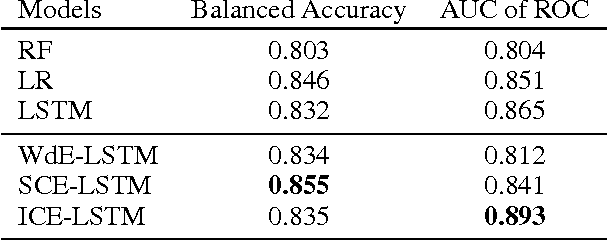Deep Symbolic Representation Learning for Heterogeneous Time-series Classification
Paper and Code
Dec 05, 2016



In this paper, we consider the problem of event classification with multi-variate time series data consisting of heterogeneous (continuous and categorical) variables. The complex temporal dependencies between the variables combined with sparsity of the data makes the event classification problem particularly challenging. Most state-of-art approaches address this either by designing hand-engineered features or breaking up the problem over homogeneous variates. In this work, we propose and compare three representation learning algorithms over symbolized sequences which enables classification of heterogeneous time-series data using a deep architecture. The proposed representations are trained jointly along with the rest of the network architecture in an end-to-end fashion that makes the learned features discriminative for the given task. Experiments on three real-world datasets demonstrate the effectiveness of the proposed approaches.
 Add to Chrome
Add to Chrome Add to Firefox
Add to Firefox Add to Edge
Add to Edge